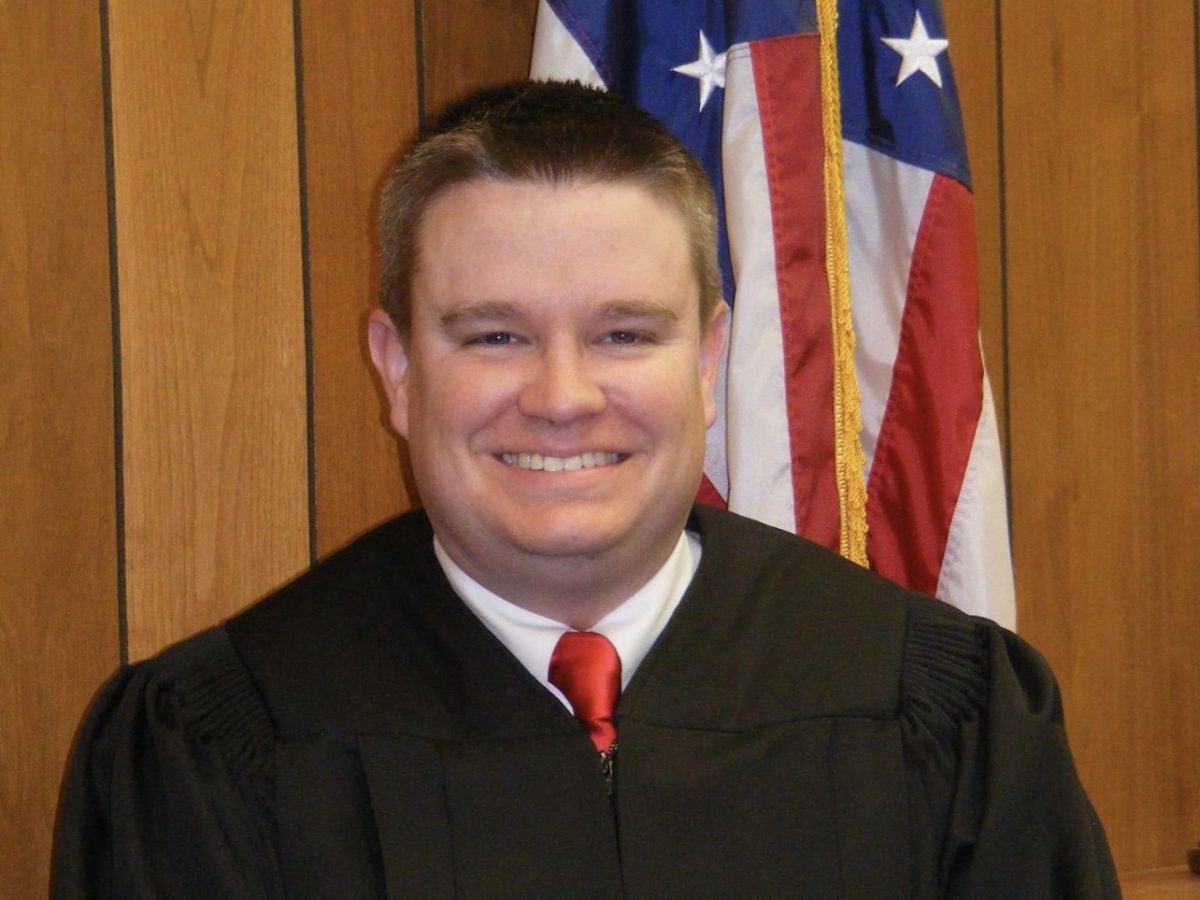The Ninth Judicial Circuit consists of five judges, two circuit clerks, and their staffs that handle thousands of cases each calendar year across DeKalb and Cherokee Counties.
Everyone that works in the system is mindful of the impact that they have on the individuals that come into court and the community. The judiciary enforces the law that is passed by your elected representatives in the legislative branch. United States Supreme Court Justice Clarence Thomas summarized the role of the judiciary well when he said, “The job of a judge is to figure out what the law says, not what he wants it to say. There is a difference between the role of a judge and that of a policymaker. Judging requires impartiality.”
As your presiding judge, it is my belief that the public should be aware of the number and type of cases that come through your local judicial system in the previous year. Furthermore, you should know some of the efforts that are undertaken to improve your local system.
DeKalb and Cherokee County Courts handled 18,847 cases in the last calendar year. These cases included traffic offenses, small claims, district civil, child support enforcement, juvenile cases, domestic relations, complex civil lawsuits, misdemeanor criminal cases, and felony criminal cases. Every case that the court system handles begins in the Circuit Clerk’s Office in each county.
DeKalb County Circuit Clerk Todd Greeson and Cherokee County Circuit Clerk Dwayne Amos process every document filed in the court system. Their respective staffs are professional, courteous, and strive to provide the best service to the people that come through their offices. The Circuit Clerk’s also organize jurors when necessary, ensure that the documents filed are assigned to the appropriate court, and process passport applications. Each clerk is consistently trying to upgrade and utilize the latest court technology that is available through the Alabama Administrative Office of Courts.
Virtually every civil case that is filed must be accompanied by a docket filing fee commonly called court cost. The amount of this cost is set by law. In most cases, the cost must be paid for the court to have the power to hear and resolve the case. From January 2021 to December 2021, the Ninth Judicial Circuit collected approximately $2.3 million dollars in civil court costs.1
In addition, at the conclusion of a criminal case, various costs are often assessed. The cost collected through this side of the court system consists of restitution that is due to the victims of various crimes, fines imposed by statute, cost of the court that is imposed by the rule, and other assessments. From January 2021 to December 2021, the Ninth Judicial Circuit collected approximately $2.5 million dollars in criminal assessments.2
The local courts have established pay review dockets to ensure that victims of crime get compensated for their loss. It is the duty of the Victim Services Unit of the District Attorney’s
1 Amount of cost collected provided by the DeKalb and Cherokee County Clerk’s Offices. 2 Amount of cost collected provided by the DeKalb and Cherokee County Clerk’s Offices.
Office to assist victims in collecting restitution. There is a victim services representative at the courthouse of each county. We are all aware that victims suffer when they endure hardship because of a crime.
Contrary to what you may think, much of the cost that is collected through the local judiciary does not remain with your local government. State law provides these costs be remitted to the state’s general fund. The legislature decides how they will be allocated throughout the state.
One of the programs that the local judiciary has taken advantage of in the past year was the assignment of a referee to help process child support cases. Presiding Judge Shaunathan Bell appointed Mr. Colby Matthews, Esq. to this position. The judges that handle child support will be able to utilize this referee to settle child support cases more efficiently, which in turn will free up court time to handle other cases that the courts need to process and allow the children affected to begin receiving much needed support in a timely fashion.
In response to a recent study conducted by the Alabama Administrative Office of Courts, the Chief Justice of Alabama has requested that the Governor and Legislature add another District Judge position for DeKalb County. Chief Justice Parker wrote a letter to these branches of government on January 5, 2022, that included DeKalb County as one which had an “immediate, critical need.” In the coming year, your local judiciary will be working diligently with other branches of government to secure another District Judge position for DeKalb County, but there is no guarantee that this will be added in the coming year.3
In addition to their routine duties, your judges have worked diligently to advocate for infrastructure upgrades to the local courthouses. Notable examples of these upgrades include heart defibrillators, security equipment upgrades, law library upgrades, and public records access terminals. Your judges and circuit clerks will continue to collaborate with the Alabama Administrative Office of Courts for additional technology upgrades in the future.
Your local judiciary is vigorously working to ensure your constitutional rights are protected. Judges Shaunathan Bell, Jeremy Taylor, Andrew Hairston, Steven Whitmire, and Wes Mobley sincerely appreciate the opportunity to serve you.
Respectfully,
Shaunathan C. Bell
Presiding Ninth Judicial Circuit Judge
3See www.alacourt.gov/JRAC.aspx





